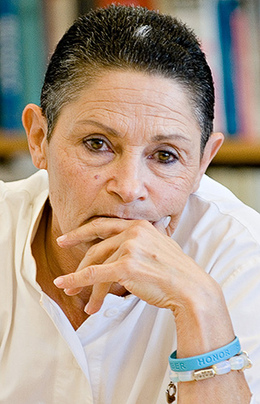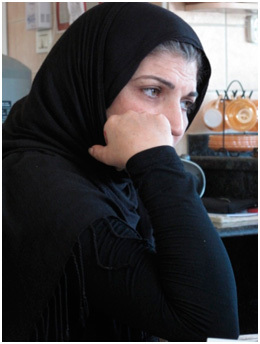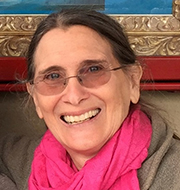 by beCause Global Associate Robi Damelin, co-leader Parents Circle, those who have lost children to the conflict and work together for peace rather than vengeance — So many see our situation in Palestine and Israel as hopeless, impossible, and quite frankly unsolvable. We who live here, who care about the safety of our children, cannot afford to become immune and wait for somebody else to take care of them and their safety. We do not have the luxury of apathy or of waiting for some leader to emerge who will save us from ourselves. Today, more than ever the Parents Circle – Families Forum (PCFF) , an organization of bereaved Palestinian and Israeli families, believes that women must come to the forefront and be a much more dominant catalyst in finding away for a better future.
by beCause Global Associate Robi Damelin, co-leader Parents Circle, those who have lost children to the conflict and work together for peace rather than vengeance — So many see our situation in Palestine and Israel as hopeless, impossible, and quite frankly unsolvable. We who live here, who care about the safety of our children, cannot afford to become immune and wait for somebody else to take care of them and their safety. We do not have the luxury of apathy or of waiting for some leader to emerge who will save us from ourselves. Today, more than ever the Parents Circle – Families Forum (PCFF) , an organization of bereaved Palestinian and Israeli families, believes that women must come to the forefront and be a much more dominant catalyst in finding away for a better future.
It is not some naive belief that reconciliation is the only way. The story we will tell today is an illustration of the possibility of change and the consequences of this change.
 Bushra Awwad, lost her beloved son, a young and beautiful boy studying for his final year of high school, to an Israeli sniper. This dreadful event turned her into a bitter and angry women who initially said that, “If I meet the man who killed my son, even after 100 years, I will kill him,” as with many bereaved mothers, to die along with her precious first born.
Bushra Awwad, lost her beloved son, a young and beautiful boy studying for his final year of high school, to an Israeli sniper. This dreadful event turned her into a bitter and angry women who initially said that, “If I meet the man who killed my son, even after 100 years, I will kill him,” as with many bereaved mothers, to die along with her precious first born.
Life has its strange twists and turns. Bushra found herself at a meeting of women in her little village in the West Bank with 15 Palestinians who had all lost an immediate family member, but who understood that revenge would never bring their loved one back and that a non-violent quest for reconciliation would be the only way to achieve a lasting peace and not just a cease fire, until the next bullet. I was the Israeli representative of the Parents Circle at that meeting and found myself sitting next to Bushra, she with her back to me, which in any culture is somewhat of an insult.
I started to ask through a translator, for her story, for details of Mahmoud, her son, and of how he was killed. I asked her if she wanted to see a picture of my son, David, who was also killed by a sniper but in this case a Palestinian. She said yes and for the first time turned to face me. She looked long and hard at my beautiful child and sighed and said in Arabic, “What a pity.” This was a turning point in Bushra’s life. It was the moment when she understood that we shared the same pain and the moment when she saw the possibility of joining the Parents Circle in order to protect her other children.
Since this fateful day, Bushra has become one of the most active and important members of the Parents Circle’s Women’s group. She is being trained to tell her story, how to cope with an aggressive audience and their difficult questions and also how to effect the situation and not to allow it to affect her. Bushra donated blood in our Blood Relations project. She heads a special embroidery project and in fact traveled with me for her first time in a plane to Bushra speaks to an audience of 3,000 at Lincoln Center in New York. How inspiring and how much this can go towards an affirmation of the work we are doing and of how powerful women can be when we have a chance to tell our stories and to be trained to use these skills to a broader audience.
There are many more stories like Bushra’s and of Palestinian and Israeli women just waiting for the opportunity to share them.
———
This piece was originally published on Huffington Post. Robi and Bushra are the subjects of a remarkable new book, Our Tears Have the Same Color, available Oct 8. Featured in a deeply touching documentary film One Day After Peace and a profoundly moving TEDx. Robi is one of four international 2014 Women PeaceMakers. Her son David was killed by a Palestinian sniper during his Israeli army reserve service. She speaks with Palestinian partners in communities and schools throughout Israel, the Palestinian Territories and globally, as campaigners from both communities who have paid the ultimate price and still work for peace. She also returned to her native South Africa to learn more about reconciliation processes since the end of apartheid, starting with the Truth and Reconciliation Commission. You can follow the work of The Parents Circle on Twitter.

